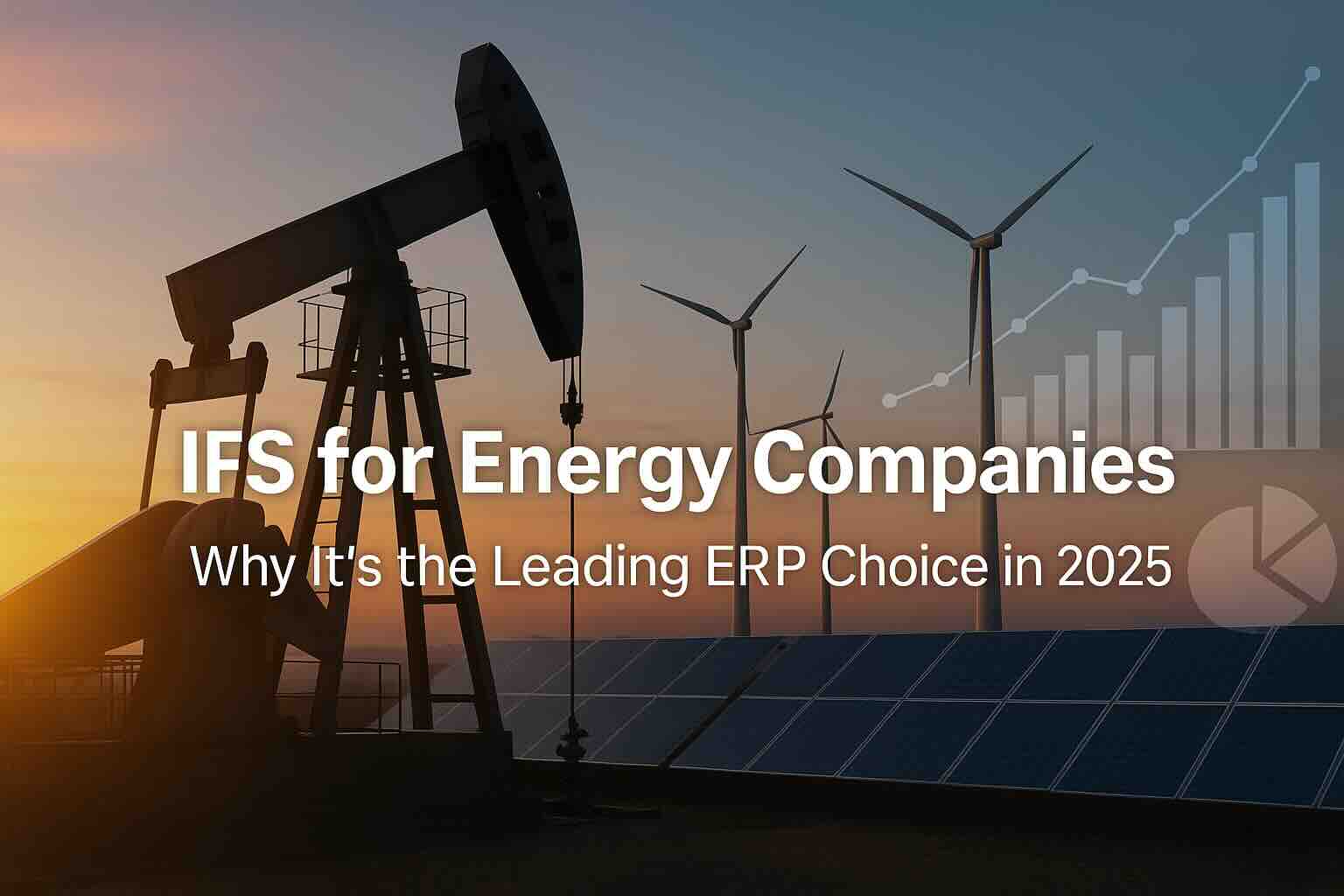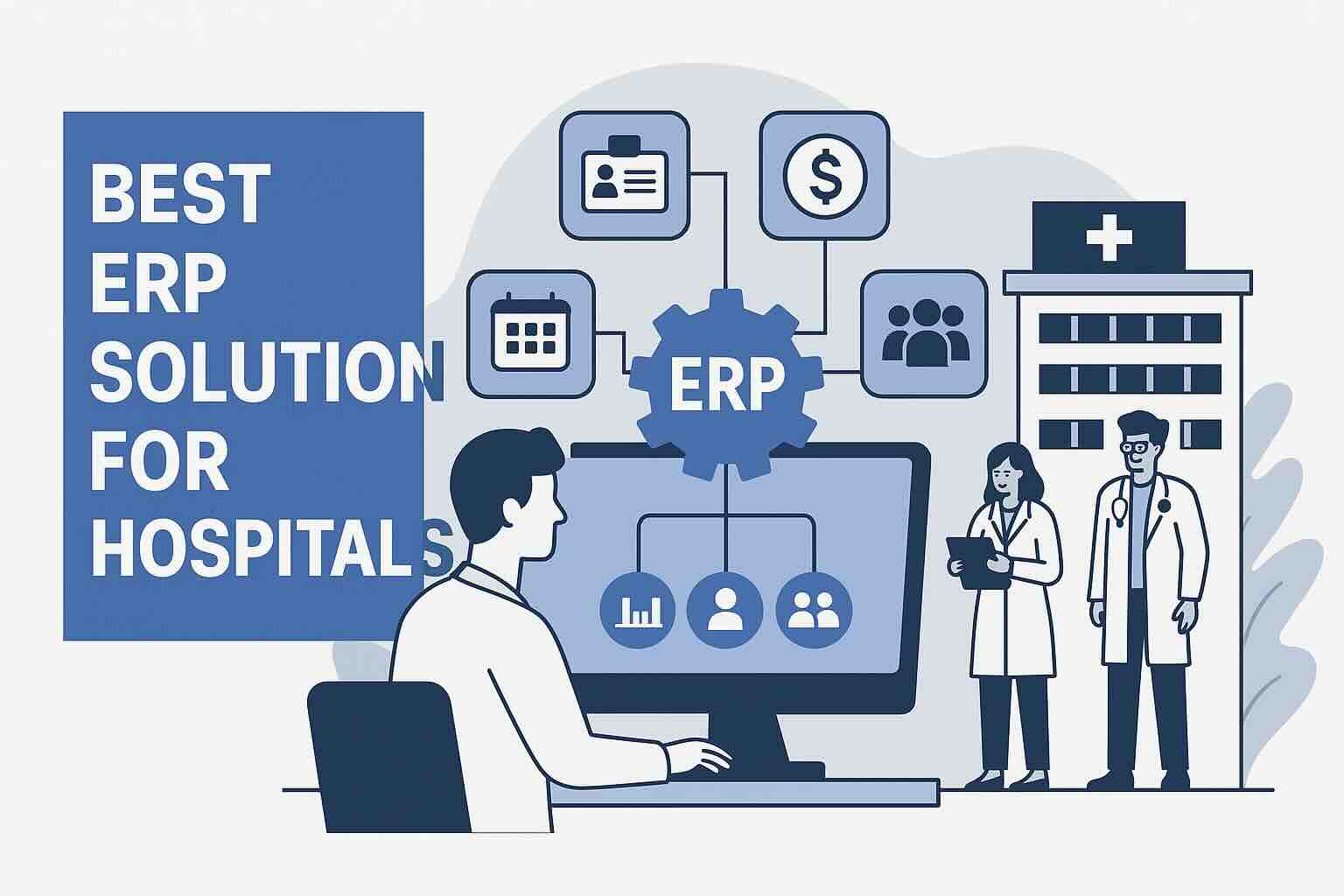IFS for Energy Companies: Why It’s the Leading ERP Choice in 2025

Choosing the right Enterprise Resource Planning (ERP) system is critical for energy businesses. These organizations face complex challenges, managing assets, projects, and strict safety rules. In 2025, IFS Cloud has become one of the top ERP solutions designed for oil, gas, and renewable energy companies.
But why does IFS for energy companies stand out? This guide explains its main features, recent AI updates, and what energy leaders should know before selecting it.
Why IFS Cloud Is Popular with Energy Companies
Built for Asset‑Intensive Operations
Energy companies depend on large and costly assets like pipelines, rigs, and wind farms. IFS for energy companies provides full Asset Lifecycle Management (ALM), covering buying, maintenance, and end‑of‑life stages.
In April 2025, IFS.ai launched with AI tools that predict equipment problems and reduce downtime. As a result, companies can cut costs and keep operations running longer.
Strong Project Management Features
Energy projects, such as offshore rigs or pipeline builds, often run for years and involve many teams. IFS Cloud’s project management tools bring budgets, timelines, and resources into one platform.
This approach improves visibility and teamwork. Therefore, leaders can make faster decisions and keep projects on track.
Compliance, Safety, and ESG Built In
Energy firms must follow strict rules for safety and the environment. At the same time, investors now expect ESG (Environmental, Social, Governance) reporting.
IFS for energy companies includes Health, Safety, and Environment (HSE) modules plus ESG tracking. As a result, organizations can record incidents, meet regulations, and publish sustainability data without extra software.
Supply Chain and Procurement Made Simple
Energy supply chains are large and global. They involve heavy equipment, long transport routes, and multiple vendors. IFS Cloud offers real‑time views of inventory, supplier performance, and logistics.
In addition, it helps forecast materials and reduce delays. This transparency leads to lower costs and fewer disruptions.
Unified Financial Management
Capital projects in energy need tight cost control. IFS Cloud links finance to daily operations, providing multi‑currency accounting and live profitability reports.
With built‑in AI forecasting, finance teams can plan ahead and react quickly to changing oil and gas prices.
Scalable and Flexible Deployment
IFS Cloud is cloud‑native, yet it also supports hybrid or on‑premise setups for companies with strict data rules. Its modular design allows businesses to start small – finance or supply chain first and add more features later.
This flexibility is ideal for energy companies expanding into renewables or new regions.
AI‑Driven Insights and Analytics
The new IFS.ai layer makes ERP smarter. It predicts equipment failures, automates safety reports, and improves supply planning. Moreover, executives can ask questions in plain language and get instant answers, turning ERP data into a decision‑making tool.
Pros and Cons of IFS for Energy Companies
Strengths
-
Excellent asset and field service management
-
AI‑driven predictive maintenance (new in 2025)
-
Strong compliance and ESG features
-
Modular design that grows with the business
Considerations
-
Complex implementation – needs experienced partners
-
Best partner network in Europe and Asia, still growing in North America
-
Less suited for companies focused on discrete manufacturing
Final Verdict: Is IFS Right for Your Energy Business?
In 2025, IFS for energy companies is one of the strongest ERP options available. It fits industries where assets and safety are top priorities. Meanwhile, its AI‑driven tools and modular design make it adaptable to fast‑changing energy markets.
Although SAP S/4HANA and Oracle Fusion remain strong competitors, IFS’s focus on asset‑intensive operations gives it a clear edge for many energy firms. To find out more about IFS you can visit this link.
Find the Perfect ERP in Minutes
Choosing the right ERP can transform your business. With our AI‑powered Compare ERP tool, you can quickly explore and compare solutions tailored to your needs.
-
Get a personalized recommendation in less than five minutes
-
Our engine analyzes millions of data points across 100+ ERP solutions
-
Receive your top three picks based on your business priorities
-
Completely free – no hidden fees or commitments
Take the first step toward streamlining operations and boosting productivity and start comparing today!









